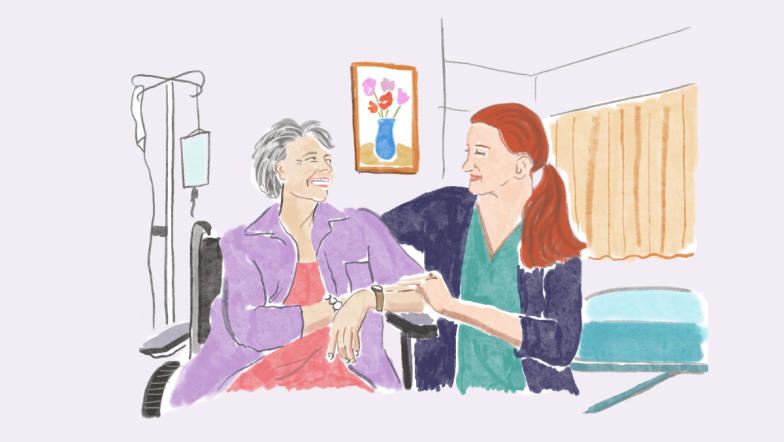Why we need to tailor legal help for LGBTQI+ clients
27 Nov 2018
Our former-secondee, Alex Dworjanyn, shares her insights into how we can use the law to better support young LGBTQI+ people.
I started my secondment at Justice Connect not long after the Re: Kelvin decision had passed. The decision was a relief to many families who no longer had to go through the emotional and financial burden of the Family Court to access Stage 2 hormone treatment for gender affirmation treatment.
However, the Re: Kelvin decision did not relieve all children and their families from the burden of going to the Family Court in order to access Stage 2 treatment. The decision did not include children who had one parent (or guardian) who did not support their decision to access treatment.
We continued to assist several children and their parents who were unable to access Stage 2 treatment, as their circumstances were not covered by the Re: Kelvin decision. A few of these clients were told to contact us by organisations that support gender diverse people, such as Parents of Gender Diverse Children.
We’re still fighting for equality
We still saw people struggling to access the treatment they needed. We saw people whose hospital staff were unaware of the decision, or unwilling to pay attention or adhere to it. And we saw parents—often with little involvement in the child’s life—who came out of the woodwork to contest a child’s decision.
We’re continuing to provide these families and children with the legal help they need. We’re also trying to expand the help we provide to members of the LGBTIQ+ community.
Currently, there’s not enough legal help available for the common issues LGBTIQ+ children face. These include issues at school, such as school uniform policies, sports, bathrooms and camping trips. It also includes obstacles when it comes to changing their name and gender on their identification documents.
Along with providing one-on-one legal help, we need to ensure people understand discrimination laws as they apply to LGBTIQ+ community members. We need to make navigating the law easier, so affirming someone’s gender identity is no longer a burden.
Now we’re looking to a fairer future
Many of our pro bono partners are ready and willing to take on LGBTQI+ matters. We’re so thankful to the invaluable assistance these lawyers have provided. However, we also need to create resources to help LGBTQI+ people and their families understand their legal requirements. That means resources for people looking to update their IDs, information for young people about school uniforms, and general information on discrimination and their legal rights.
We’re working on more resources to help LGBTQI+ people and allies understand their legal rights. But as with any complex problem, there’s no simple solution. Instead, we need to work with our partners across community, pro bono, social work and healthcare sectors to increase awareness of the issues LGBTQI+ people face.
We are looking to work on creating easy-to-understand, useful legal resources for our website. We’re doing this by consulting LGBTIQ+ supporting organisations and listening to the individuals that we assist. We’re also thankful to our pro bono partners, who are dedicating time, resources and expertise into creating the legal resources. We know there’s a gap in free legal resources for LGBTQI+ people and their families. We’d like to fill it, using all our resources to make it the best and most useful it can be.
It is really great to come back to my firm with more knowledge of the legal issues faced by the LGBTIQ+ community. My firm does a lot to support LGBTIQ+ employees. I’m looking forward to seeing how my work at Justice Connect in the LGBTIQ+ space informs my understanding of, and contributions to, my firm’s support for the LGBTIQ+ community.
Get legal help for LGBTQI+ through our Stage 2 helpline
If you have a legal issue that relates to being a member of the LGBTIQ+ community, we’re here to help. Call Justice Connect on 1800 STAGE2 (1800 782 432) between 9am and 5pm, Monday to Friday. You can also email Justice Connect at stage2@justiceconnect.org.au.


